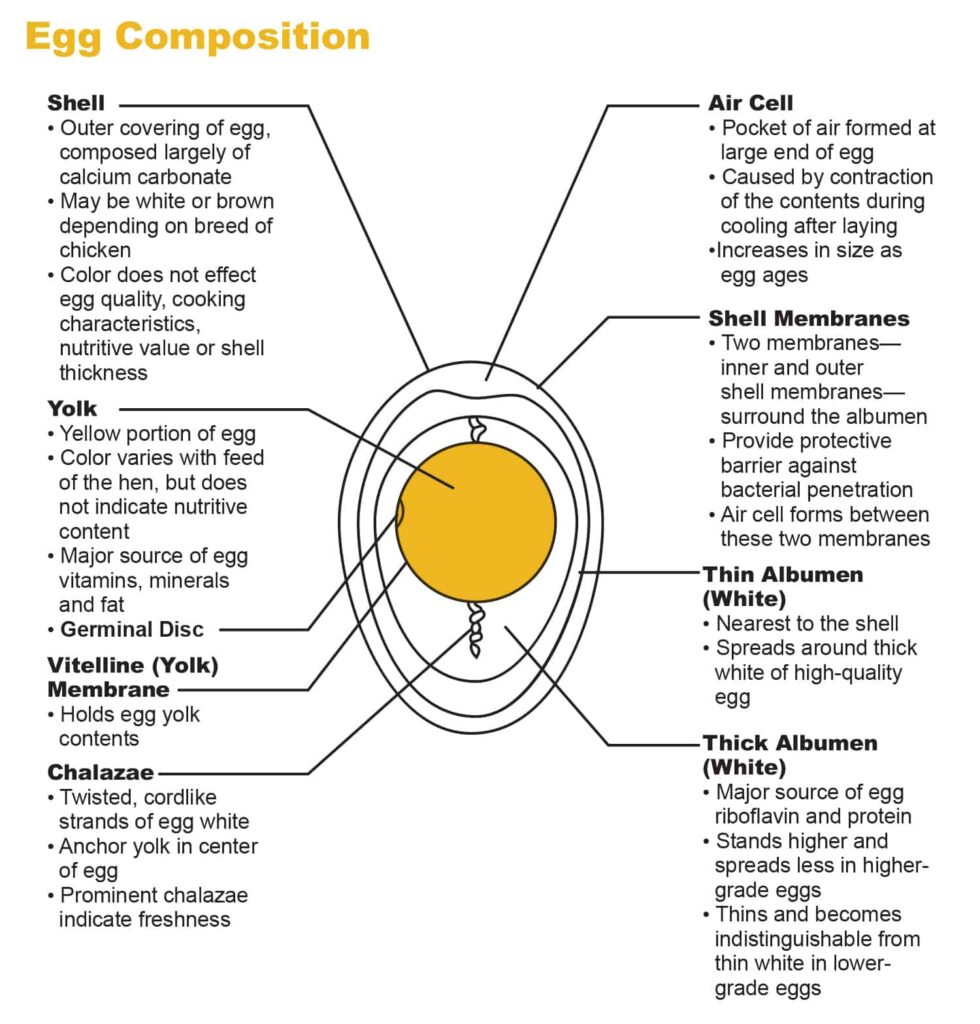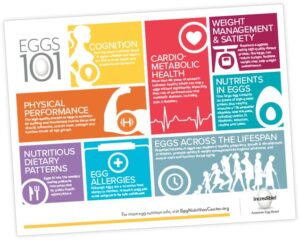Egg Composition & Nutrition
Egg Composition | Parts of an Egg

Nutrition
Eggs are a naturally nutrient-rich food, containing eight essential nutrients. Eggs provide an excellent source of vitamin B12, biotin (B7), iodine, selenium, and choline; a good source of high-quality protein, riboflavin (B2) and pantothenic acid (B5); as well as the carotenoids lutein and zeaxanthin (252 mcg), all for only 70 calories.
Nutrient packed
The yolk makes up just over one-third of an egg. It provides three-fourths of the calories, all of the fat-soluble vitamins (A, D, E and K), and all of the choline, lutein, and zeaxanthin. The yolk also provides most of the phosphorus, iron and folate and almost half of the protein and riboflavin. The white (albumen) provides more than half of the total protein and riboflavin.
Choline, an essential nutrient, is shown to be important for proper brain development in the fetus and newborn and may play a role in memory function throughout life and into old age. The carotenoids lutein and zeaxanthin, which are found in eggs, are important in maintaining eye health. Though these nutrients are present only in small amounts in eggs, research shows they may be more bioavailable, or absorbed and utilized by the body, when obtained from egg yolk than from richer sources.
Complete protein
Eggs contain the highest quality protein and are often used as a standard to measure the quality of other protein sources. Eggs also have the highest biological value of any protein, meaning the essential amino acids they provide are used very efficiently by the body. Because eggs are very easy to digest, they are frequently included in therapeutic diets.

Eggs 101

Eggs: A Natural For Any Foodservice Operation
